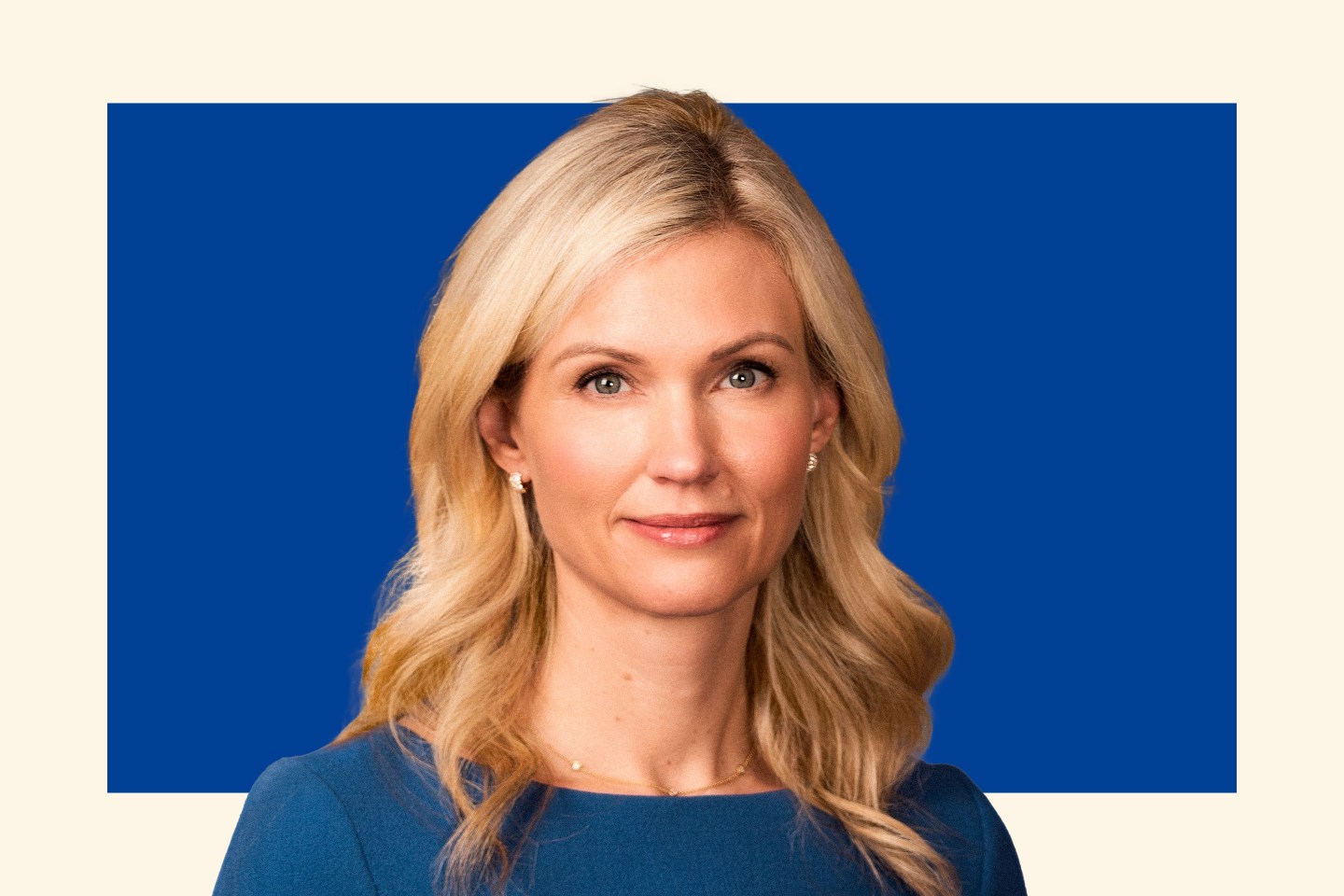Good morning!
Goldman Sachs unveiled a new mandatory program last month: All employees and managers with the title of vice president or higher must complete a virtual mental health training.
Developed from previous in-person training, the course takes around 25 minutes to complete, and teaches managers how to identify concerning behaviors, appearances, or attitudes in employees—such as sudden spikes in absenteeism, rude conduct, or changes in dress or hygiene—and how to respond to them. During the training, managers also practice responding to different workplace scenarios, such as helping employees navigate bereavement leave or anxiety over global conflicts.
“We felt like the time was right to expand this and scale it to all of our managers,” Jacqueline Arthur, Goldman’s global head of human capital management, tells Fortune. “So many of our people are struggling right now with what’s happening in the world.”
Mental health has become one of the top issues that employers must tackle, and companies have started pursuing various strategies to promote well-being among employees, including on-site therapy, extended time off policies, and volunteering opportunities.
This latest initiative from Goldman is just one of several recent mental well-being initiatives. The company launched a “mental health first aid” program in the U.S. in 2022, which trains employees to listen to colleagues’ issues and recommend relevant resources. It also offers employees free access to the meditation app Calm (note: Goldman has invested in the company).
Arthur says the latest virtual training aims to be part of a more holistic mental health support system for employees. But tasking managers with supporting workers’ mental health can be tricky to execute. I previously covered the debate around whether bosses should be responsible for addressing their subordinates’ mental health. Critics argue that leaders place unfair burdens on supervisors and press them to act as de facto therapists.
Arthur acknowledges this risk, and says a key part of the curriculum is that managers learn to “stay in role” and not cross boundaries by offering diagnostic opinions or treatment advice. Instead, supervisors are taught to direct employees to company resources, such as Goldman’s wellness team, or benefits options like its employee assistance program. Bosses are also encouraged to reach out to Goldman’s employee relations team or business partners team before speaking with employees to help strategize how they can talk with that worker and support them.
“We thought it was very important to make it clear what their role was, and that we’re not mental health professionals,” she says. “It’s important to be supportive of our employees and ultimately it’s also important to bring in the right expertise.”
Supervisors at the company have around one month to complete the course. The company says managers will be evaluated in their performance reviews and employee surveys when it comes to how well they retain the information—workers will be asked to rate how effective they think their manager is, including how well they think their manager supports them.
Paige McGlauflin
paige.mcglauflin@fortune.com
@paidion
Today’s edition was curated by Emma Burleigh.
Around the Table
A round-up of the most important HR headlines.
- Land O’Lakes rolled out its “flex work” policy at manufacturing facilities last year—and retention skyrocketed. Wall Street Journal
- Toyota will decide on what to offer its organized workers next week. The union has been pushing for a wage increase equivalent to nearly an extra month of pay. Bloomberg
- AI interviewers are entering the recruitment process—and low-level applicants in the job market will be most prone to robots picking up the phone. Guardian
- Applying to jobs via resume bots proved more fruitful than manually composing applications—and employers couldn’t tell they were AI generated. Business Insider
Watercooler
Everything you need to know from Fortune.
Protecting health care. Alabama’s IVF supreme court ruling could be just the beginning—here’s how workplaces can ensure their employees get the health care they need. —Paige McGlauflin
Take control. Jefferies CEO Richard Handler says that employees struggling to find a work-life balance need to take matters into their own hands, and that companies will work staffers nonstop if they don’t. —Orianna Rosa Royle
City bosses: More managers live in expensive cities, thanks to the remote work revolution. —Irina Ivanova and Alena Botros
This is the web version of CHRO Daily, a newsletter focusing on helping HR executives navigate the needs of the workplace. Sign up to get it delivered free to your inbox.













